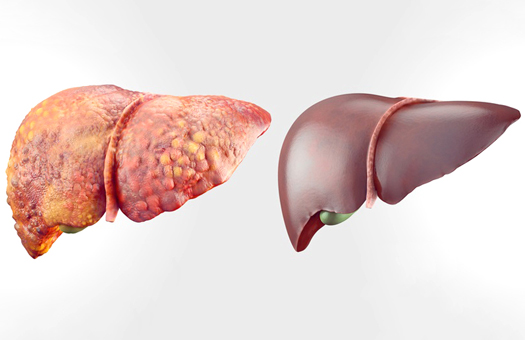The benefits Liver Detoxification and its function as Cellular Antioxidant
Liver detox is the provision of vitamins B and C, amino acid, magnesium, sodium bicarbonate, peptide glutathione and nutrients which support toxin elimination by liver. Nowadays, we can be exposed to toxins in many ways. The liver is an important organ with functions that include metabolism control, digestion, vitamin and mineral accumulation, red blood cell generation and natural detoxification. Therefore, Absolute Health prioritizes in toxin reduction treatments and liver management programs.

Peptide glutathione and function of glutathione
Peptide glutathione is a tripeptide consisting of three amino acids (glutamine, cysteine and glycine). Glutamine, cysteine and glycine are the main components of glutathione which are highly important as a cellular antioxidant. The liver uses glutathione in phase 1-2 of the detoxification process. The therapy provides peptide glutathione to specifically strengthen the liver and support detoxification.
Differences between liver detoxification and chelation
Chelation therapy aims to eliminate heavy metals. But some toxins, such as insecticides, preservatives, hydrocarbon, and micro-plastic can be removed from the blood only by the liver.
Toxins are excreted from the body through many ways. But insufficient glutathione leads to toxin accumulation and increased free radicals which cause diseases and degeneration of the cells. Therefore, liver detoxification is important to the body.
Liver detoxification: Why is the injection route preferred to oral medicine?
Oral glutathione supplementation cannot be absorbed into the body as well as injectable glutathione. Hence, injectable glutathione is better suited for liver detoxification treatments.

Suitable candidates for liver detoxification
Candidates for liver detoxification are individuals who had been exposed or at risk of exposure to toxins. Some example are as follows:
-
someone who regularly dines out
-
a person whose work involves contact with toxic materials
-
residents around industrial areas
-
residents in polluted districts
-
a person who regularly sleep late
-
alcohol drinkers and smokers
-
a person who regularly consumes processed foods with preservatives (sausage, ham, fermented pork)
-
a person who regularly consumes contaminated foods such as peanuts and ground chili powder
-
a person who is on long term use of painkillers
How often can you do liver detoxification?
The treating doctor normally determines the number of liver detoxification sessions in accordance to objective of the treatment plan. For example, if the objective is toxin elimination, the patient can undergo the detoxification therapy once a week. In cases of patients with Parkinson's disease, more glutathione may be needed to resist the symptoms in which weekly sessions may be increased or patients may be asked to come for the detoxification treatment on a daily basis.
In general, there are not actual limitations to the number of times liver detoxification can be carried out on an individual. As protein-bound glutathione is the key medium used in the detoxification treatment, it actually works also as an antioxidant which is fantastic for health.

Post treatment tips
After the liver detoxification treatment, the liver would normally be able to get rid of toxins more efficiently. Therefore, patients should not immediately expose themselves to new element of toxic contaminants like smoking or alcohol drinking. The liver will also release more metabolites after the treatment. Thus, patients are normally advised to not have heavy meals right after the treatment.
Ways to prevent liver disease
Lifestyle changes can help keep your liver healthy. The list of advice below can be important for an individual at higher risk of developing liver issues:
-
Limit the amount of alcohol you drink.
-
Keep a healthy weight.
-
Exercise every day if possible.
-
Regular check-ups with your doctor.
-
Eat a well-balanced diet. Five to nine servings of fruits and vegetables, along with fibre from vegetables, nuts, seeds and whole grains. Also include protein for the enzymes that may help your body.
-
Cut down on risky behaviour that can lead to viral hepatitis:
-
Avoid recreational drugs. If you do use them, don’t share needles or straws to inject or snort them.
-
Don’t share razors, toothbrushes, or other household items.
-
Don’t have unprotected sex with people you don’t know.
Conclusion
The liver is a key organ in the body. Its main functions are to process nutrients from the food we consume and to flush out all the toxins from the body. But that is only the tip of the iceberg. The liver also builds protein, makes bile and more. That is why it is extremely important for everyone to have a healthy and pristine functioning liver.
............................




Sign In
Create New Account